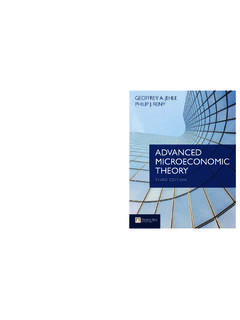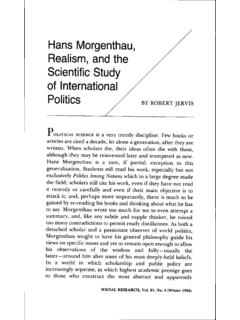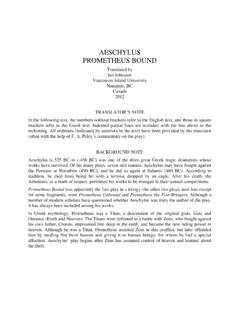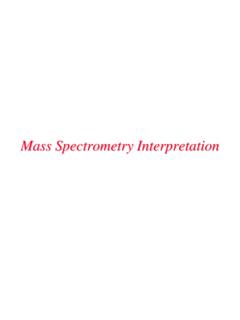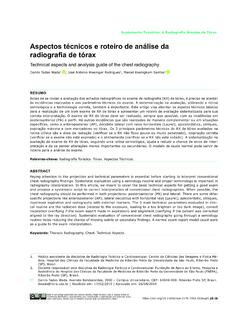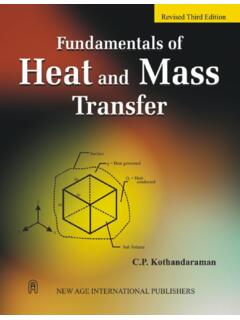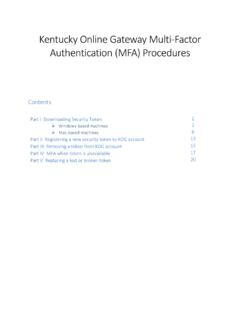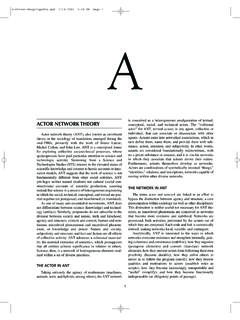Transcription of Foreign Policy Analysis: Actor-Specific Theory and the ...
1 Foreign Policy analysis : Actor-SpecificTheory and the Ground of InternationalRelationsVALERIEM. HUDSONB righam Young UniversityExamining the history, conceptual breadth, and recent trends in thestudy of Foreign Policy analysis , it is clear that this subfield provides whatmay be the best conceptual connection to the empirical ground uponwhich all international relations (IR) Theory is based. Foreign policyanalysis is characterized by an Actor-Specific focus, based upon the ar-gument that all that occurs between nations and across nations isgrounded in human decision makers acting singly or in groups. FPAoffers significant contributions to IRFtheoretical, substantive, andmethodologicalFand is situated at the intersection of all social scienceand Policy fields as they relate to international affairs. A renewedemphasis on Actor-Specific Theory will allow IR to more fully reclaim itsability to manifest human agency, with its attendant change, creativity,accountability, and theoretical discipline has a ground.
2 A ground means the conceptualizationof the fundamental or foundational level at which phenomena in the field of studyoccur. So, for example, the ground of physics is now that of matter and antimatterparticles. Economists often use the ground of firms or households. It is upon suchground that theories are built, modified, and even discarded. Sometimes just theknowledge that the ground exists frees the researcher from having to anchor his orher work in it, permitting greater heights of abstraction to be reached. A physicistcan work on problems related to black holes, and economists can speak of trends inworld markets without having to begin each new research effort by going over theground of their respective relations (IR) as a field of study has a ground, as well. All thatoccurs between nations and across nations is grounded inhuman decision makersacting singly or in groups. In a sense, the ground of IR is thus the same ground of allthe social sciences. Understanding how humans perceive and react to the worldaround them, and how humans shape and are shaped by the world around them, iscentral to the inquiry of social scientists, including those in s note:Hudson would like to thank Douglas Van Belle for his invaluable article contains excerpts from previously published and forthcoming works, used by permission, including Foreign Policy analysis Yesterday, Today, and Tomorrow, (with Christopher Vore;Mershon International StudiesReview, Vol.)
3 39, Supplement 2, 1995, 209 239), Foreign Policy Decision-Making: A Touchstone for InternationalRelations Theory in the Twenty-first Century, in Richard C. Snyder, H W. Bruck, and Burton Sapin (eds.),ForeignPolicy Decision-Making (Revisited)(New York: Palgrave-Macmillan, 2002, 1 20), andForeign Policy analysis : Classic andContemporary Theory , forthcoming by Rowman and International Studies by Blackwell Publishing, 350 Main Street, Malden, MA 02148, USA, and 9600 Garsington Road, Oxford OX4 2DQ, Policy analysis (2005)1, 1 30 However, it is fair to say that most contemporary theoretical work in IR gives theimpression that its ground lies in states, or, in slightly alternative language, thatwhatever decision-making unit is involved, be it a state or a human being or agroup, that this unit can be approximated as a unitary rational actor and thereforebe made equivalent to the state. Sometimes this approach is referred to as black-boxing the state, or as a billiard ball model of state interaction.
4 It can also betermed Theory of actors -in-general, or actor-general is possible to simultaneously value contemporary IR Theory while also insistingthat the ground of IR is neglected to the detriment of the field, with that detrimentfelt substantively, theoretically, and methodologically. It is IR s subfield of foreignpolicy analysis (FPA) that develops the Actor-Specific Theory required to engage theground of IR. With its assumption that human decision makers acting singly and ingroups are the ground of all that happens in international relations and that suchdecision makers are not best approximated as unitary rational actors equivalent tothe state, FPA is positioned to provide the concrete Theory that can reinvigorate theconnection between IR actor-general Theory and its social science foundation(Lane, 1990).1A fuller exploration of the positive ramifications of this reinvigoratedlinkage to ground will be possible after a discussion of the nature of the of the Foreign Policy analysis ApproachThe explanandum of Foreign Policy analysis includes the process and resultants ofhuman decision making with reference to or having known consequences for for-eign entities.
5 Typically, the horizon of interest is delimited to decision making per-formed by those with the authority to commit resources, usually but not always thelegitimate authorities of nation-states. Often one may be examining not simply asingle decision or indecision, but a constellation and/or sequence of decisions takenwith reference to a particular situation. At other times it is the process of decisionmaking that is the focus of inquiry, including problem recognition, framing, per-ception, goal prioritization, option assessment, and so forth. Usually excluded fromanalysis are nonpurposeful actions and decisions that cannot be conceptualized ashaving an international , it is the explanans of FPA wherein we find its most noteworthy hall-marks. The explanans of FPA are those factors that influence Foreign Policy de-cision making and Foreign Policy decision makers. Thus, two of the hallmarks ofFPA scholarship are that it views the explanation of Foreign Policy decision makingasmultifactorial, with the desideratum of examining variables from more than onelevel of analysis (multilevel).
6 Explanatory variables from all levels of analysis , fromthe most micro to the most macro, are of interest to the analyst to the extent thatthey affect the decision-making process. As a result, insights from many intellectualdisciplines, such as psychology, sociology, organizational behavior, anthropology,economics, and so forth, will be useful to Foreign Policy analysts in their efforts toexplain Foreign Policy decision making, makingmulti-/interdisciplinaritya third hall-mark of FPA. Thus, of all subfields of IR, FPA is the most radicallyintegrativetheoretical enterprise, which is its fourth hallmark, for it integrates a variety ofinformation across levels of analysis and spanning numerous disciplines of is also true that the ground of the human decision maker leads us toward anemphasis onagent-orientedtheory, this being a fifth hallmark of FPA. States are notagents because states are abstractions and thus have no agency. Only human beings1 Much in the same way that Richard Thaler s (1994) school of behavioral economics regrounds the moderndiscipline of , it should be noted that the same conceptual and methodological tools used in FPA may still be usefulin examining human decision making regardless of substantive Policy Analysis2can be true agents, and it is their agency that is the source of all internationalpolitics and all change therein.
7 Going further, FPA Theory is also profoundlyactor-specificin its orientation (to use a term coined by Alexander George, 1993, 1994),unwilling to black box the human decision makers under study. The humansinvolved in the Cuban Missile Crisis, for example, were not interchangeable genericrational utility maximizers and were not equivalent to the states for which theyserved. Not just general and abstract information, but specific and concrete infor-mation about the decision makers in all three countries (the Soviet Union, theUnited States, and Cuba) would be necessary to explain that crisis. Actor specificity,then, is FPA s sixth have argued that FPA requires a back-breaking burden of near-impos-sible proportions to be assumed by the analyst (McClosky, 1962:201). Others haveargued that IR Theory and FPA Theory may not even be commensurable (Waltz,1986). But these assertions are not true, and cannot be true if FPA theoreticallyengages the ground of IR. Rather, FPA s possibility is of positive value to Value of Foreign Policy AnalysisThe single most important contribution of FPA to IR Theory is to identify the pointof theoretical intersection between the primary determinants of state behavior:material and ideational factors.
8 The point of intersection isnotthe state, it is humandecision our IR theories contain no human beings, they will erroneously paint for us aworld of no change, no creativity, no persuasion, no accountability. And yet fewmainstream IR theories over the decades of the Cold War placed human beings inthe theoretical mix. Adding human decision makers as the key theoretical inter-section confers some advantages generally lacking in IR Theory . Let us explore eachin turn:First, theories at different levels of analysis can finally be integrated in a mean-ingful fashion. As Snyder, Bruck, and Sapin put it over 40 years ago,The central concept of decision-making may provide a basis for linking a group oftheories which hitherto have been applicable only to a segment of internationalpolitics or have not been susceptible of application at all .. By emphasizingdecision-making as a central focus, we have provided a way of organizing thedeterminants of action around those officials who act for the political makers are viewed as operating in dual-aspect setting so that apparentlyunrelated internal and external factors become related in the actions of the de-cision-makers.
9 (1962:74, 85)In IR, there are quite a number of well-developed theoretical threads, studyingsuch phenomena as institutions, systems, group dynamics, domestic politics, and soforth. Often we refer to the two-level game that state decision makers must play:the simultaneous play of the game of domestic politics and the game of interna-tional politics (Putnam, 1988). The formidable task of weaving these threads to-gether has been stymied by the insistence on retaining the state as a metaphysical actor. If one replaces metaphysics with a more realistic conceptualization of actor, the weaving becomes feasible, although certainly still addition, other types of Theory that have not been well developed inIR, such as the Theory of how cultural factors and social constructions withina culture affect state behavior, can now be attempted with a greater probabilityof success. It was not until the 1990s that serious work on this subject by IRscholars became more accepted as informing the major theoretical questions of thediscipline ( , Katzenstein, 1996; Lapid and Kratochwil, 1996; Hudson, 1997).
10 Only a move toward placing human decision makers at the center of the theoreticalVALERIEM. HUDSON3matrix would allow the theorist to link to the social constructions present ina engine of theoretical integration in IR, then, is the definition of the situationcreated by the human decision makers. As Simon (1985:303) put it 20 years ago, Itis far easier to calculate the rational response to a fully specified situation than it isto arrive at a reasonable specification of the situation. And there is no way, withoutempirical study, to predict which of innumerable reasonable specifications the ac-tors will adopt. FPA provides that necessary empirical second major advantage conferred is the possibility of incorporating a morerobust concept of agency into IR Theory . Scholars in IR have struggled with the agent-structure problematique for some time now (Carlnaes, 1992; Checkel,1993; Wight, 1999). Although no final resolution will ever be accepted, as this is aperennial philosophical conundrum, what is accepted is that IR Theory currentlyprovides much more insight into structure than agency.
